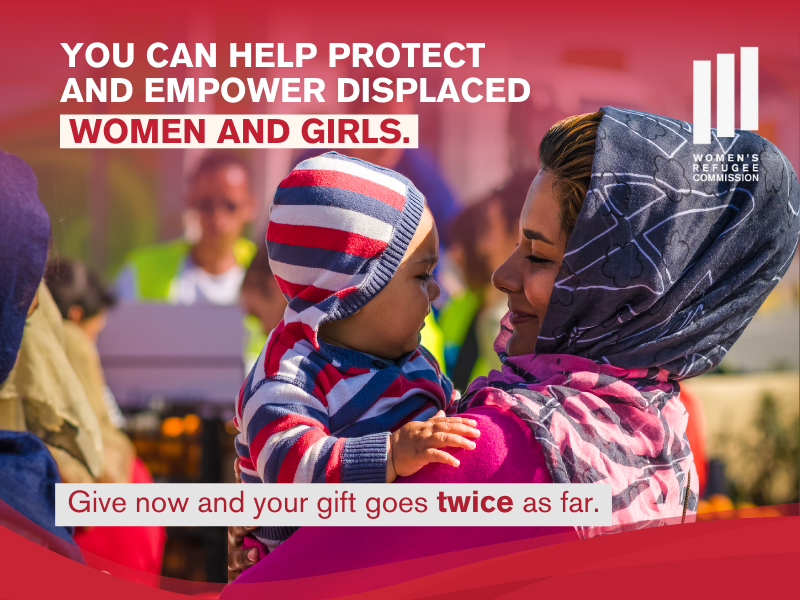New Report Reveals Findings on Sexual Violence against Men and Boys across Refugee Settings, Calls for Action
NEW YORK, NY – According to data collected between 2018 and 2019, sexual violence against men and boys in conflict and crisis settings is more common than previously understood, with forms of violence including genital violence, anal rape, and forced witnessing of rape.
A new synthesis report of that data, released today, identifies common findings across settings, as well as recommendations for host governments, donor governments, and humanitarian providers – some of which have already been enacted.
The initial studies were conducted by the Women’s Refugee Commission (WRC) in three refugee settings – Bangladesh, Italy, and Kenya – and were inclusive of research in conflict settings such as Myanmar, Libya, eastern Democratic Republic of Congo, and South Sudan.
“A year on from our research, the findings remain as disturbing as ever, both in the specific cases of abuse as well as the documentation of common findings across settings,” said WRC Vice President of Programs Dale Buscher. “Now that we have a better understanding of sexual violence against men and boys – and the associated impact on women and girls and other populations – it is imperative that all humanitarian actors take immediate action. While we acknowledge that some organizations have begun to address sexual violence against men and boys, the response from donor governments and others is not nearly enough for survivors of all genders.”
The synthesis report also shows that some men and boys are vulnerable to sexual violence in refugee settings, not only in conflict. Groups particularly vulnerable to sexual victimization in refugee settings included young boys, adolescent boys, persons selling sex, and persons with diverse sexual orientation, gender identity and expression, and sex characteristics (SOGIESC), especially transgender refugees. It also reveals that perpetrators included other refugees (including family members), members of the host community, landlords, taxi drivers, and state authorities such as the police.
To more adequately prevent and respond to sexual violence against refugees of all genders and sexualities, WRC is calling for actions including:
- Refugee-hosting governments must eliminate barriers to refugee documentation and expand access to international protection for vulnerable refugees; ensure legal definitions of rape and other forms of sexual violence are inclusive of all affected populations; and abolish anti-LGBTIQ+ legislation.
- Humanitarian service providers must work more collaboratively with communities, particularly with survivors in all their diversity; identify and address negative attitudes and misconceptions among aid workers and develop targeted communications strategies; and improve respectful, confidential responses to women/girl and men/boy survivors – in all their diversity – and survivors who sell sex.
- Donor and refugee resettlement countries must increase resettlement slots and quotas for refugees, particularly those most marginalized and at risk, and provide funding to support and expand services for male survivors in addition to increased funding for women and girls; support systems to improve prevention, mitigation, and response to sexual violence; fund local and community-based organizations; and better support frontline service providers.
Since the initial studies were conducted, some changes have been implemented in refugee settings:
- In Cox’s Bazar, Bangladesh, a support group for the Hijra community – Rohingya refugees with non-conforming gender identities – was established to enhance their protection, hear their concerns, and build their social support networks. WRC partnered with an organization to train Rohingya “male survivor advocates,” who served as a first line of information, psychosocial support, and referral for men and boy sexual violence survivors, as well as Hijra survivors. WRC also developed and piloted a training for health workers to share knowledge and practice on treating male survivors of sexual violence within the Rohingya refugee community.
- In response to the study focused on sexual violence against men and boys along the Mediterranean route into Italy, WRC partnered with UNICEF to develop and pilot a curriculum for cultural mediators and interpreters on identifying, working with, and referring men/boy and women/girl survivors of sexual violence. UNICEF also partnered with WRC to develop a Pocket Guide on supporting young male refugee youth at risk of/or survivors of sexual violence in the European context. Both of these resources are currently being finalized and UNICEF plans to use them throughout their European operations to strengthen the capacity of their and their partners’ staff.
- In Kenya, WRC is supporting an organization that works with the LGBTIQ+ refugee community to strengthen their protection and social networks through a series of workshops and community meetings with Kenyan LGBTIQ+ organizations. The Kenyan report findings and this program practice will be shared at UNHCR’s upcoming workshop on LGBTIQ+ refugees.
###


